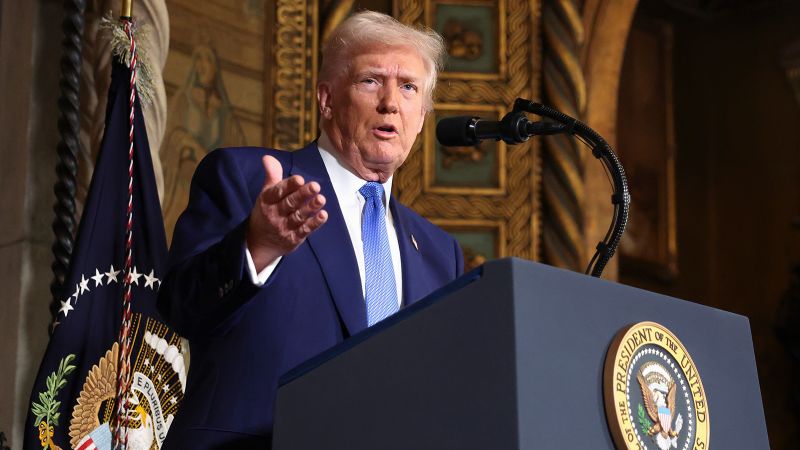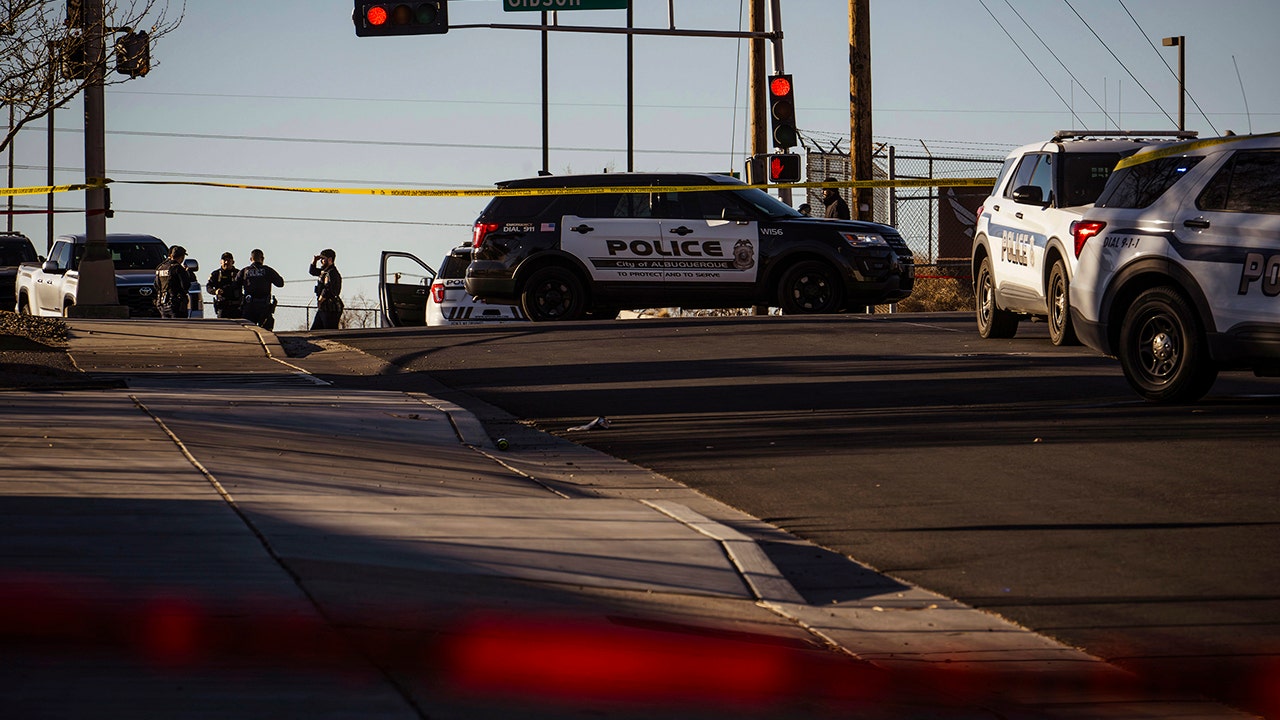CNN
—
It looked like things couldn’t get any darker for Ukraine. Then President Donald Trump spoke up.
After cutting President Volodymyr Zelensky out of the first US talks with Russia on ending the war, Trump on Tuesday falsely accused Ukraine of starting a conflict that has ravaged its land and killed thousands of its people.
And in his most hostile comments toward the Ukrainian leader yet, Trump voiced yet another of President Vladimir Putin’s talking points — that it was time for an election in Ukraine — in an apparent bid to begin the process of pushing Zelensky aside.
The US president’s comments will fuel fresh fears in Europe, which was also excluded from the US-Russia talks in Saudi Arabia, that Trump will try to impose a peace deal in Ukraine that favors his friend in the Kremlin.
His remarks also appeared to directly contradict assurances by his own Secretary of State Marco Rubio after meeting the Russian delegation that any eventual peace agreement would be fair to all parties.
And Trump’s attack on Zelensky, who was hailed as a hero in the United States for resisting Russia’s Blitzkrieg on Kyiv early in the war, was a graphic sign of how the new American administration has reversed Washington’s stance of supporting the victim of the invasion and is now rewarding the aggressor.
“We have a situation where we haven’t had elections in Ukraine, where we have martial law,” Trump told reporters at his Mar-a-Lago resort. Trump also claimed that Zelensky’s approval rating was “at 4%” and “we have a country that has been blown to smithereens.”
Reliable polling has been difficult in the middle of a war zone that has seen thousands of Ukrainians become internally displaced or flee the country. While recent surveys have shown Zelensky’s popularity dropping significantly from the almost universal approval he enjoyed at the start of the war, it’s nowhere near the depths cited by Trump.
The president also warned that for Ukraine’s views on its fate to be considered, it should have an election, saying: “You know, they want a seat at the table, wouldn’t the people of Ukraine have to have a say, like it’s been a lot of times since we’ve had an election?”
Apparently sensitive to criticism that he parrots Russian propaganda in his statements on the war, Trump insisted, “That’s not a Russia thing; that’s something that’s coming from me.”
Ukraine’s last election was due to have taken place last April, but Zelensky said it wasn’t possible for voters to go to the polls in wartime — a position that is backed up by the country’s Constitution. Trump’s insistence on voters having their say in a democracy is ironic given his own refusal to listen to the verdict of Americans in the 2020 presidential election that he lost. And it’s even more brazen since Putin has stayed in power for over two decades by holding sham elections and imposing severe domestic repression.
Trump’s latest attempt to curate American sentiment around Ukraine is similar to many of his previous efforts to fog the truth in an effort to create room for his political aspirations. The most prominent example of him doing this was the 2020 US presidential election.
At Mar-a-Lago, he also tried to reinvent the facts around Russia’s invasion three years ago, when Putin’s forces rolled across the border of an independent, sovereign democracy and redrew the map of Europe.
“Today I heard, ‘Oh well, we weren’t invited,’” the president said, referring to Ukraine’s complaints that it’s not been allowed to take part in the nascent peace process. “Well, you been there for three years. You should’ve ended it after three years. You should’ve never started it. You could’ve made a deal,” he said.
In essence, the president seems to be suggesting that the Ukrainians should have made an agreement with Russia to avoid the invasion — which, in practice, would have involved submitting to a puppet government in Kyiv loyal to Moscow or simply giving up fighting to hand a win to Putin.
Trump’s response to the Saudi talks, which he said on Tuesday could be followed by an in-person meeting with Putin by the end of the month, risked redoubling what was already a victory for the Russian side. His comments are also likely to further cement opposition to his long-shot peace plans among Europeans, who his administration says must be responsible for enforcing any future agreement to stop the fighting.



